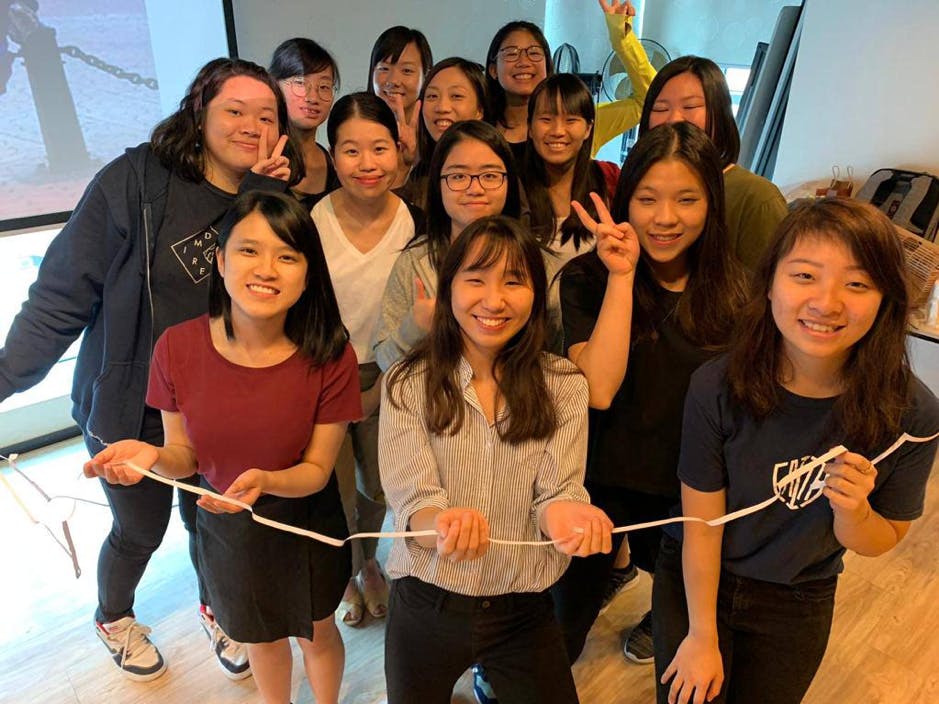Modern Careers - To University, Or Not?
Posted by Alexandra Lamb
We’ve recently been fielding a lot of questions about the relevance of traditional uni degrees for modern careers.
Companies are asking whether a BA still needs to be part of their screening and hiring requirements in all cases, and individuals themselves are questioning the spend and relevance.
We decided to speak with a few people who chose to go against the conventions of their professional fields, to hear how they perceived uni degrees when they first set out from high school, and how their decisions panned-out down the track. If you’re considering your own professional pathway, here’s a few questions to ask yourself!
Start with WHY:
One thing we heard loud and clear, was that whether you decide to study at university or not, it’s so important to ask what you’re expecting from your career, and what motivates you – even though that will change over time.
So many people follow the path well trodden into university studies because it’s been either explicitly or implicitly communicated to them as an expectation by society or family, and not actually because it meets a personal need.
It’s hard for a 17 yr old to truly sit back and critically think about their own pathway (let alone a 27 yr old, or 37 yr old for that matter…), but it’s important to do.
Even though you have plenty of chances to course-correct, the friction that comes from starting down a track that’s clearly not aligned to your goals can be huge.
We talked to Liz, who had recently made just this call.
Run Experiments:
The odds are that our careers will change 7-10 times in our lifetime now, so committing to 3-6 years of study would need to be a very high pay-off activity, relative to your medium term goals.
If you think about it constructively and concertedly, getting input from those who know you best, and running small experiments to ‘dip your toe’ in a profession first, then there’s still a lot to be said for formal study, but it doesn’t need to be university by default.
Long-form study is a lot to commit to, when actually you might be learning about what ‘fits’ you by increments.
This is the message we heard from Mike, someone who proactively crafted his own course of study and experience based on his work goals.
There’s many people in the same boat as Liz and Mike, proving that getting experience in alignment to your personal version of success can far outweigh the piece of paper.
Side-steppng a BA certainly hasn’t slowed them down, and in fact may have sharpened their perspective on what their ‘best’ career looks like. And universities are always there later for them in life – goodness knows they’re not going out of business, albeit needing to tailor their product to a more aware buyer.
Use Uni For What It Is:
We kept hearing that uni is for two types of people – those who are inspired into their profession, and those at the other end of the spectrum, who really don’t know what they want to do and need to get more experiences and see what emerges.
For many 18-24 yr olds, university still serves as a great holding pen, while they develop as an adult (cognitively and socially), trial out some more accountability and independence, and get ready for the workplace and society.
It’s certainly an expensive holding pattern, but it does give young adults a chance to further develop their character and reflect on the life they want to have ahead of them.
This doesn’t mean it’s essential, but most people will tell you they learned more about who they were as a person during a BA, than what they did about their profession.
For companies, this means they can make some assumptions about maturity when they’re hiring fresh graduates, but it says nothing for vocational fit, and this maturity assumption obviously diminishes over time.
For highly technical and specialised degrees in STEM, clinical professions, education, public policy, engineering etc, the knowledge gained through a BA and MA can be essential.
These degrees might validate your baseline knowledge… and yet there’s a lot to be said for experience.
The best way for a developer to become proficient is… to code.
Data science is now showing us much more about what success is made of, and school isn’t it (neither is personality, by the way!). As companies switch their attention to skills and away from pedigree, individuals who’ve thought constructively about their pathways and sought out key experiences will excel.
If you're interested in learning more about how BOLDLY can help your organisation, we invite you to explore our website or write to us at connect@boldly.app.
About the Author:
Alexandra Lamb is an accomplished organisational development practitioner, with experience across APAC, North America, and MENA. With 20+ years in professional practice, conglomerates, and startups, she has collaborated with rapid-growth companies and industry innovators to develop leaders and high-performance teams. She is particularly experienced in talent strategy as a driver for business growth. Drawing from her experience in the fields of talent management, psychology, coaching, product development, and human-centred design, Alex prides herself on using commercial acumen to design talent solutions with true impact.





